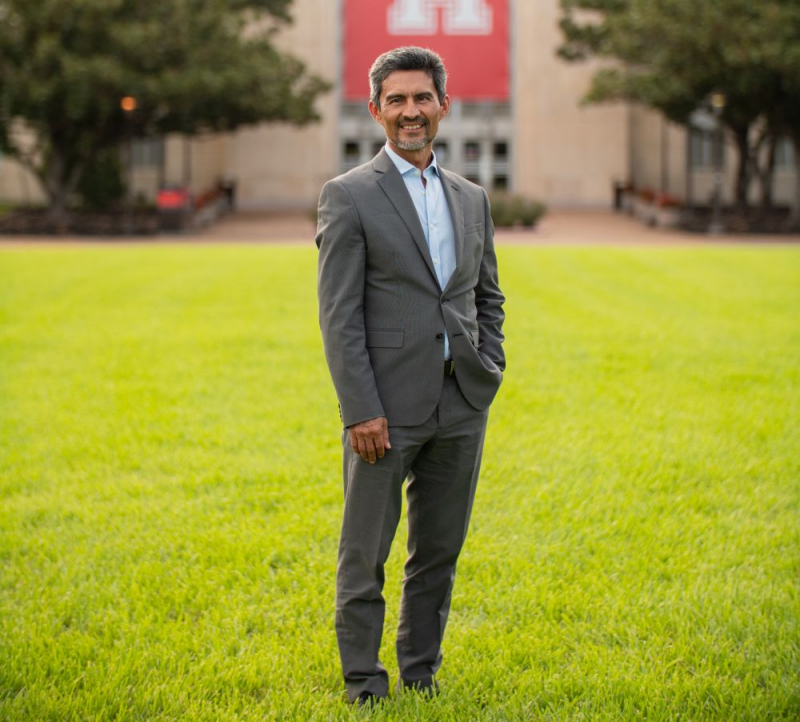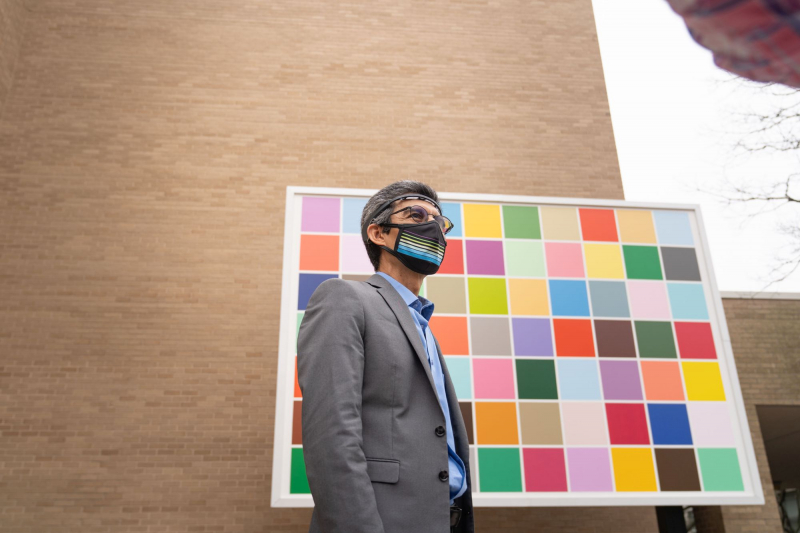A professor in the Electrical and Computer Engineering Department of the Cullen College of Engineering has been asked to serve on the National Advisory Board on Medical Rehabilitation Research (NABMRR) for the National Institutes of Health (NIH).
Jose “Pepe” Luis Contreras-Vidal, Hugh Roy and Lillie Cranz Cullen Distinguished Professor and the Director of the NSF IUCRC BRAIN Center, said it was a surprise but also an honor to be asked to serve.
“It was frankly a surprise, because they can pick from many talented people,” he said. “I think from my work with them in the past and other federal agencies, they know I'm very enthusiastic about bringing people together, and sharing ideas. I take this position very seriously, so it's a privilege to have this recognition. Not only for me, but as a representative of the UH faculty. I think it's a great opportunity to emphasize what we do here and what we care about.”
Contreras-Vidal's appointment as a member started on July 6, 2021. His term runs through June 30, 2025. The Board advises the directors of the National Institute of Child Health and Human Development (NICHD), the National Center for Medical Rehabilitation Research (NCMRR) and the NIH on matters and policies relating to NCMRR's programs. The board is composed of 12 members representing health and scientific disciplines related to medical rehabilitation, and six members representing persons with disabilities.
His first meeting with the board will be virtual in December because of the Covid-19 pandemic, Contreras-Vidal said.
“It's a great opportunity to learn about policy, to learn about the state of the nation's medical rehabilitation research, because the board gets regular reports on that,” he said. “It helps direct research that's important for the NIH. I think it's also a good recognition for the university, and for the work that we're doing.”
As a board member, Contreras-Vidal said that he will be interested in helping to establish standards and best practices for “research and development of ethical and trustworthy medical devices, including those based on artificial intelligence (AI) and neural interfaces, that could help advance medical rehabilitation across the lifespan. He noted that established standards and best practices would accelerate development, since it provides researchers “solid ground” to start from.
“There are also ethical ramifications of this technology, and I think we need to be proactive about that,” he said. “We also need to make sure everyone has access to these developments. Diversity, equity, and inclusion are important parts, not just for UH's mission, but for the nation. I think the diversity of this board is very good, and it's a very interesting group of expert colleagues from different areas spanning rehabilitation research. We like to think about team science because everything that's important requires input from different areas from biomedical to behavioral research.”

